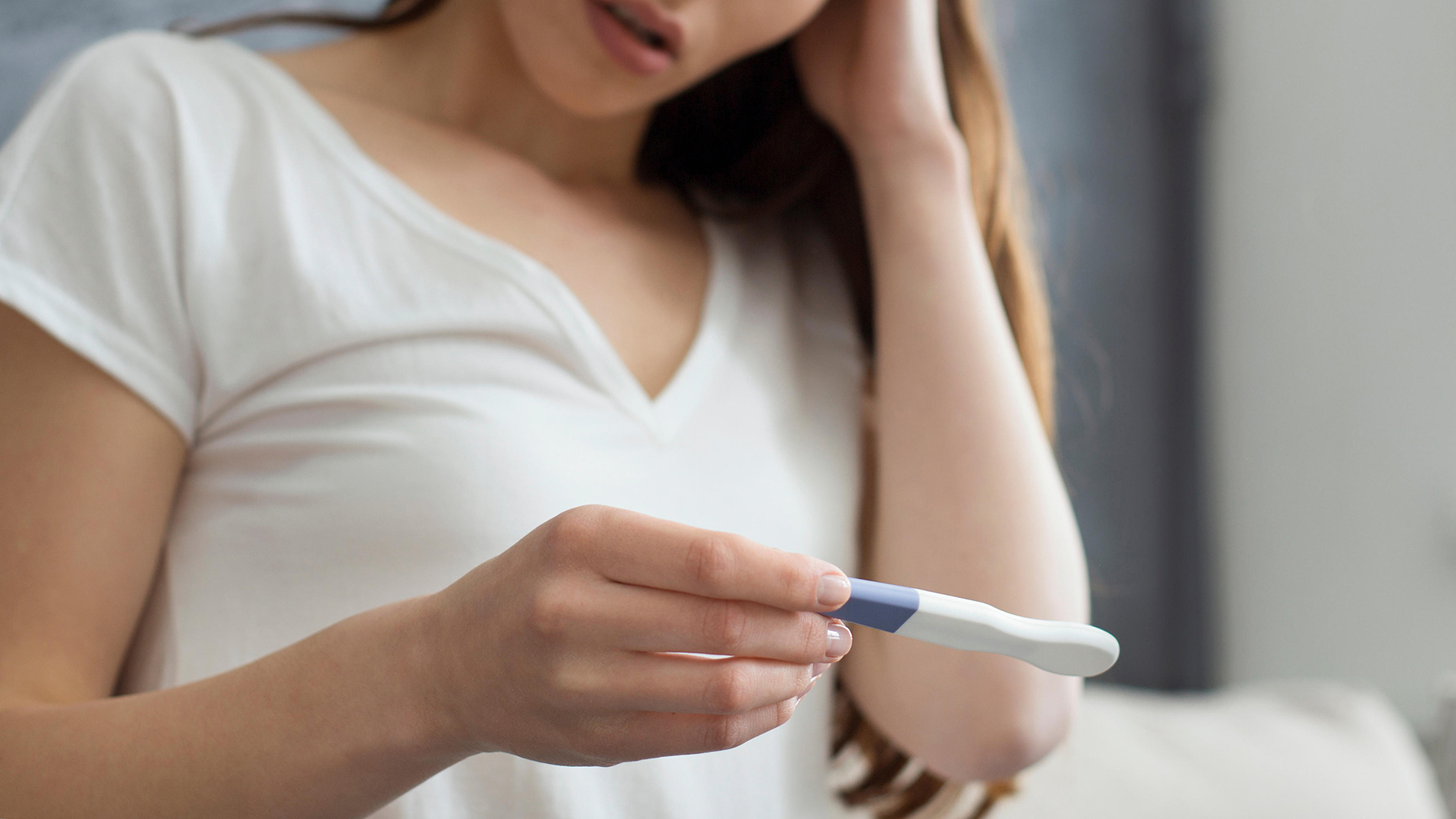What is ovulation? Everything you need to know about ovulation
Do you know how ovulation works? Getting pregnant should be easy, but it isn't always. So, read all about ovulation here, find out when you're most fertile and try our ovulation date calculator


Parenting advice, hot topics, best buys and family finance tips delivered straight to your inbox.
You are now subscribed
Your newsletter sign-up was successful
Find out more about ovulation with Fertility expert Dr Larisa Corda's ovulation guide. It tells you exactly how to work out when you're ovulating, what triggers ovulation as well as when you should have sex to increase your chances of conception.
When you’re trying to get pregnant, the one thing every woman will almost invariably be worrying about is ovulation. Find out exactly what it is, how it impacts fertility and how an ovulation calculator can help identify when you're ovulating?
Here, we separate the facts from the fiction on everything from the early signs of ovulation to questions about eggs and sperm.
What is ovulation?
Ovulation is a part of your menstrual cycle, your period. And it happens when an egg is released from your ovary.
If the released egg is fertilised by sperm, it travels to the uterus and implants to develop into a pregnancy. If the egg is not fertilised, it disintegrates and the uterine lining is shed during your period.
Understanding how ovulation happens and when it takes place is not only good practice to undertand your own body and how it works, it can also help you fall pregnant.
What happens when you ovulate?
Every month your body prepares itself for a pregnancy. During this process one follicle (on rare occasions it may be two) is selected to grow in your ovary and produce an egg, that is then released due to a surge of hormones regulated by the brain.
Parenting advice, hot topics, best buys and family finance tips delivered straight to your inbox.
This usually happens mid-cycle, about 14 days in, but cycle lengths can vary widely between women, which can make predicting ovulation rather tricky.
There is no set pattern or order as to which ovary ovulates each month: it could be the same one or they can alternate. Once released from the follicle, the egg then travels down your fallopian tube where it has the opportunity to meet sperm. If this happens and fertilisation successfully occurs, then an embryo is created which then goes on to implant in the womb. If fertilisation does not occur, the womb lining is shed and you experience a monthly period.
How long does your cycle last?
Every woman is different. The average cycle is 28 days, but many healthy, fertile women will have a cycle slightly shorter or longer than this, so won’t necessarily ovulate on day 14. But this can be perfectly normal for them! Whereas the lead up to ovulation, or the follicular phase, can vary, the luteal phase, or time after ovulation, is usually the same, around 14 days.
When you ovulate depends on the due date of your next period and not the previous one – for instance, if your cycle regularly lasts 31 days, you should ovulate on day 17 (deduct two weeks of the luteal phase from the cycle length). So if you have sex on your prime fertile days, between days 14 and 17, you have a good chance of falling pregnant. Confused? Our ovulation calculator can help.

What triggers ovulation?
It’s all down to hormones. You produce Follicle Stimulating Hormone (FSH) during the first part of your cycle, which triggers your body to start the process of maturing eggs for ovulation.
It also increases the amount of oestrogen being produced and when oestrogen levels are high enough, they trigger a release of Luteinizing Hormone, or LH, causing the mature egg to burst from the follicle. That is ovulation. Occasionally more than one egg may be released if two follicles grow and burst, which is how non-identical twins are conceived.
How can you tell if you’re ovulating?
If you learn to ‘read’ your body and get to know your cycle you should be able to tell when you’re ovulating. Every woman is different, and you should spend time familiarising yourself with your own body’s pattern of behaviour, but there are a few general rules that can help.
One of the best ways to tell is to look out for changes in your cervical secretions. After your period, you can feel quite dry for a day or so and then get a whitish type of secretion. Then, when you start to ovulate the secretion from your vagina will change to a clear, sticky, mucus-like discharge. It’s wettish and stretchy, like raw egg white, and normally quite noticeable, so start looking out for it. This is a good sign you’re ovulating. After ovulation, the discharge will change again and become creamy and white.
Do ovulation prediction kits and temperature charts make a difference?
They can be a useful guide to tell you when you’re ovulating, but can also be inaccurate and also cause confusion as well as unnecessary anxiety. Ovulation kits work by testing your urine for a hormone surge which occurs just before ovulation, but by the time you get the result, the window of opportunity may have passed.
Some of the more accurate ones which provide a value for your LH hormone include My Lotus monitor, and can provide you with a useful graph. Something called basal body temperature (BBT) measurements can also be used, but these rely on the fact that your body temperature increases a very small amount after ovulation – again, you may have already ovulated by the time you get this information, so it’s too late to conceive in that particular cycle, though if your cycle is regular, you can use it to help you to predict ovulation in the next one. Learning to read and understand your body is what’s best, so if you use a monitor, it hopefully just backs up what you are experiencing yourself.
How long do the sperm and egg live and when is the best time to have sex?
An egg lives for about 12-24 hours after you ovulate, and sperm can live for five to seven days. Ideally, you need a lot of sperm on stand-by to ‘pounce’ on that egg when it’s released, so having regular sex in the lead up to ovulation is very important, meaning that no matter when ovulation occurs, there should theoretically be enough sperm available to do their job, if you’re trying to get pregnant.
Too many people become obsessed by only having sex in their fertile window, which is a few days before ovulation and the day of ovulation. Yes, this will give you the best chance of success but it completely deprives you of any sense of spontaneity and fun in the process, which, after all, is what sex should be about! Also, new studies have shown that sperm quality and their ability to fertilize an egg can improve with more regular sex, so even more reason to have more of it!
What should I do after sex to boost my chances?
A lot of people worry that if they feel semen fluid leak out of them, this means all the sperm have gone. This is not true! A single human ejaculate contains many millions of sperm and you only need one of these to fertilize an egg, don’t panic. However, as most people naturally feel like resting after sex, this is your body’s mechanism of encouraging the sperm to make their way into the womb and then the fallopian tubes where fertilization happens. There is no need for standing on your head as this has not scientifically be proven to help, though if you fancy doing it, go for it!
Can ovulation be painful?
Some women get a sharp pain in their lower abdomen, called mittelschmerz, as the ripe egg is released by the ovary. Rarely women may lose a small amount of blood when they ovulate too and this is all perfectly normal. But a huge amount of pain shouldn’t be felt. If you are bleeding between periods unexpectedly or experiencing a lot of discomfort, you should consult your GP.
Why can it be so difficult to get pregnant?
Humans just aren’t very fertile as a species. You only have a one in three chance of conceiving every month – and that’s just when you’re a healthy twenty-something. As you get into your thirties those chances become less with fertility typically declining much more drastically in women from around the age of 35.
1 in 6 couples may struggle to get pregnant within a year of trying. Up to 20 percent of women may be affected by this problem in their lifetime. This is really significant and is due to a number of reasons, the main one being age, but also other conditions that could affect fertility, such as endometriosis, STDs and polycystic ovaries (PCO). Then there is the male side with up to a third of infertility cases being due to problems with producing or the number or quality of sperm.
Empowering yourself with the necessary tools to be able to understand your own body and go to the doctor early enough if you suspect something is wrong, is key, as well as following some basic principles about how to optimise your and your partner’s health for pregnancy, which I share in The Conception Plan. If you are under 35 and have been trying for a year or more, go and see your GP to start some basic tests, and if you are 35 or over, do not wait longer than 6 months to go and see your doctor.
Dr. Larisa Corda is an Obstetrician and Gynaecologist and is one of the UK’s leading Fertility experts.

Dr Larisa Corda is an obstetrician and gynaecologist and one of the UK’s leading fertility specialists. She qualified from Imperial College London with her training taking place in both the UK and Australia. This has seen her gain an understanding and appreciation of gynaecological, obstetric and fertility issues across a wide international population. Larisa believes in a holistic approach to treating a patient that addresses many lifestyle factors as well as a combination of Eastern and Western medical approaches. Larisa is ITV This Morning’s and Channel Mum’s Fertility Expert, where she can regularly be seen on screen sharing her expert advice.